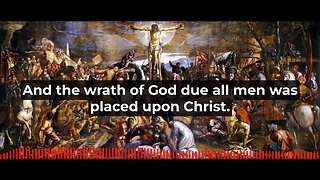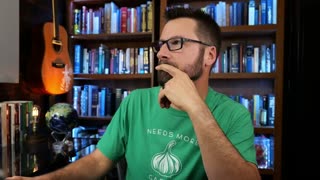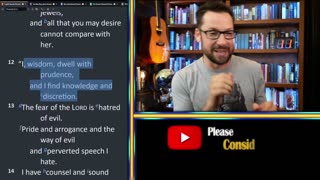Mike Winger Critique Episode 15: Is the Atonement School's God Unjust?
Paul Vendredi and Warren McGrew examine Mike Winger’s sixth video on penal-substitutionary atonement (PSA), which draws from concepts in English Common Law to defend PSA. Winger’s arguments result in an incoherent mess. For example, in his series on limited atonement, Winger argues against James White's view that the term "world" in 1 John 2;2 could refer to structures or organizations instead of people. Winger asserts that God punishes and rewards actual people. But in his PSA series, he asserts that God punishes abstractions. The hosts argue that Winger's notions lack systematic consistency, as he holds opposing views on limited atonement and PSA.
It is also noted that within the atonement school, there are two different views regarding the nature of Christ's life and death. The soteriological view, which Wayne Grudem holds, asserts that Christ's life, death, and resurrection are all part of the salvific package. In contrast, the instrumental view, held by Millard Erickson, Lewis Sperry Chafer, and Walter Martin, argues that only Christ's death has salvific value. On the instrumental view of the Life of Christ, the fine points of the hypostatic union are irrelevant; all that matters is that Jesus have a physical body with blood in it so that God can spill the blood on the cross. Winger’s mentor, William Lane Craig, espouses a Christology that necessitates the instrumental view, meaning that Winger--if he wishes to be consistent--cannot draw upon the soteriological view.
Drawing upon Francis Turretin’s works, Winger avers that there are five conditions under which it is just to punish the innocent in place of the guilty. To the claim that one such condition is that the innocent person volunteer himself, Paul notes that even in pagan religions, human sacrifices were sometimes voluntary. Aztecs considered it a great honor to allow themselves to be sacrificed to their national god, Huitzilopochtli.
Paul then faults Winger for his critique of Catholicism and its use of legal fictions, pointing out the irony that Winger, who is known for critiquing Catholicism, is also using the concept of legal fictions in his own theology. Paul uses the example of the encounter between Pizarro and Atahualpa, the Inca leader, and the presentation of the Bible as a pretext for violence.
The discussion turns to the relationship between human positive law and divine positive law. We learn that human positive law can contradict divine positive law and that there are Christian legal organizations that support people prosecuted for refusing to follow corrupt human positive laws that contradict divine positive law. Citing two Supreme Court cases where the Alliance Defending Freedom (ADF) successfully defended Christians against state laws that conflicted with their religious beliefs, Paul says that any human positive law conflicting with divine positive law is null and void.
One must also distinguish between code law and common law. The Bible presents a model of justice based on code law, where statutes dictate specific punishments for specific crimes. This contrasts with English common law, which is based on judge-made precedent, a pattern that the Bible does not model.
-
 1:19:01
1:19:01
Paul Vendredi
5 months agoMike Winger Critique Episode 11: Is the Atonement School's God Violent?
63 -
 49:13
49:13
Paul Vendredi
8 months agoMike Winger Critique Episode 2: Did the Church Fathers Teach PSA?
40 -
 1:43:00
1:43:00
HandinHandwithGodTv
6 months ago20 Questions with Mike Winger (Episode 111)
45 -
 1:27:04
1:27:04
HandinHandwithGodTv
5 months ago20 Questions with Mike Winger (Episode 113)
158 -
 1:51:00
1:51:00
HandinHandwithGodTv
6 months ago20 Questions with Mike Winger (Episode 112)
99 -
 15:08
15:08
CatholicReboot
1 month ago $0.06 earnedEpisode 2146: Doing God's Will Meekness and Truth
197 -
 1:36:55
1:36:55
HandinHandwithGodTv
7 months ago20 Questions with Mike Winger (Episode 110)
148 -
 1:48:50
1:48:50
HandinHandwithGodTv
8 months ago20 Questions with Mike Winger (Episode 109)
213 -
 1:17:09
1:17:09
HandinHandwithGodTv
3 months ago10 Questions with Mike Winger (Episode 6)
144 -
 1:45:57
1:45:57
HandinHandwithGodTv
11 months ago20 Questions with Pastor Mike (Episode 103)
87